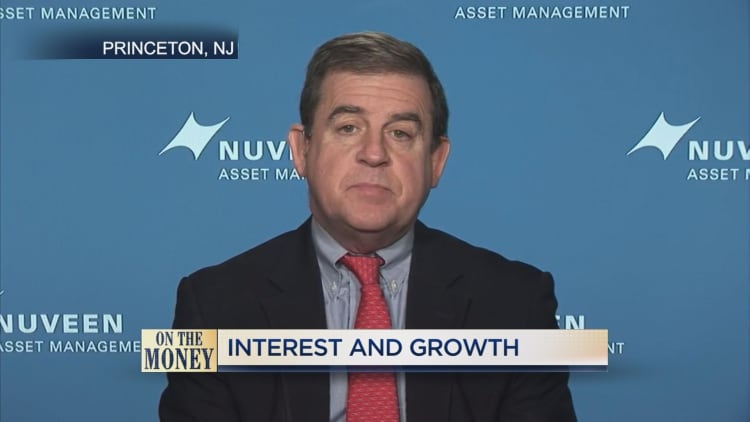
Bond funds have provided investors with years, even decades of growth. Is that streak coming to an end with the rally inspired by President-elect Donald Trump?
"People who have owned bond funds for a long period of time, they have had a wonderful ride," Bob Doll, Nuveen Asset Management chief equity strategist told CNBC's "On the Money" in a recent interview.
Much of that rally has come via aggressive Federal Reserve bond buying through quantitative easing, but the dynamic is changing. The Fed is poised to hike rates, while a boost of fiscal stimulus appears to be in the cards—all of which points to rising bond yields.
"We've had a long-term bull market in bonds, as interest rates have gone from double digits to 1.37 percent," Doll said, referring to the record low 10-year Treasury yield that hit in July.
"That's a 35-year tailwind which I think is now turning into headwind," Doll told CNBC.
Since Trump won the election on November 8th, interest rates have increased, calling into question the three-decade-old bull market in fixed income was coming to an end. For his part, Doll sees three reasons why interest rates have begun to move higher.
"Economic growth has been better," Doll said, citing "good" October retail sales and "strong" recent durable goods sales, in addition to the "lowest unemployment claims in 44 years. Plus, inflation is beginning to move from very low to low," the investor said.
Third, Doll points to the election results saying "it looks like we'll get some 'pro-growth' policies." Economists widely expect tax reform from President-elect Trump and the GOP-led Congress that could see lower income and corporate tax rates.
"All of that has caused interest rates to move up about 100 basis points," Doll said, "but probably heading higher."
So, if investors have money sunk in bond funds, should they be selling them? Doll said bond fund buyers "need to take a look at how much do I have allocated to bonds and maybe cut back a bit on some sort of rally that we might get."
And if you've been relying on income from stock growth, Doll said you may need a shift in that strategy too.
"Seeking yield has been a wonderful activity for years and it's beginning to backfire," Doll said. "I think that we're going to have to move to an environment where we take what we need from the total return of the portfolio."
Simultaneously, stock markets have surged to new record highs, a factor that may also weigh on bond prices as investors ramp up their appetite for risk-sensitive assets.
Looking ahead, Doll sees "an environment where stocks go up some and bonds go down some. So that means stocks probably deserve a bigger piece in the portfolio."
Higher interest rates are impacting mortgages too, rising on average above 4 percent on a 30-year fixed. Recent data suggests it could undermine the housing market.
"We have a pretty strong housing market, in part, because mortgage rates have been so low," the investor said.
"Thankfully rates are still low enough it probably doesn't do a lot of damage. That said, "if rates continue to move higher, slowly but surely, but irregularly, which is my best guess, eventually we will have a problem," he added.
"We've got to keep our eye on (interest rates) very carefully. I don't think we're in 'damage land' yet, but we could get there."
On the Money airs on CNBC Saturday at 5:30 am ET, or check listings for air times in local markets.



